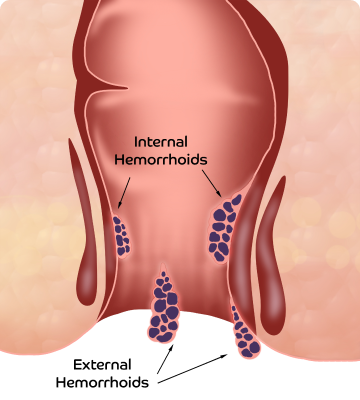What are some nonsurgical treatment options for carpal tunnel syndrome?
In the beginning stages of carpal tunnel syndrome, there is close to no nerve damage. This makes treatment of symptoms possible with nonsurgical treatment options. By diligently following nonsurgical treatment options, the pain and symptoms can be relieved, and the functioning of the hand can be improved without surgery.
Some conservative treatments for carpal tunnel syndrome are listed as follows.
- Wearing a brace or splint on the wrist reduces pressure on the median nerve and helps in relieving the symptoms of carpal tunnel syndrome.
- Some anti-inflammatory medications can be used to relieve inflammation and pain on the wrist. Such medications can be bought from local drugstores and don’t require prescriptions.
- Changes in lifestyle and activity modifications can help avoid further damage to the median nerve and control the condition.
- Steroid injections can be taken to relieve nighttime pain, cramps, and flare-ups. However, this is not a permanent fix and provides just temporary relief.
- Undergoing physiotherapy can go a long way in treating carpal tunnel syndrome. The exercises can relieve pressure on the median nerve and provide mobility to the wrist and fingers.
- Physical therapy with specific exercises can help the nerve move freely.
- Nonsurgical treatment methods can be effective if there is no nerve damage and symptoms are not severe. But if the condition has advanced, nonsurgical treatment will be futile, and surgery will be required to treat the condition.
Treat Carpal Tunnel Syndrome permanently with Endoscopic Carpal Tunnel Surgery in Pondicherry
Pristyn Care, one of the best healthcare providers in Pondicherry is known to provide excellent orthopedic treatment and care and can cure you of carpal tunnel syndrome permanently with endoscopic carpal tunnel release surgery.
Endoscopic carpal tunnel release surgery is a minimally invasive procedure that relieves the pressure on the median nerve in the wrist and eliminates symptoms of carpal tunnel syndrome effectively. In this procedure, an endoscope is inserted in the wrist with the help of a thin and flexible tube through a small incision. The doctor can visualize the ligaments and nerves on the screen connected to the endoscope.
When the median nerve and ligament are located, a small portion of the ligament suppressing the nerve is cut to relieve the pressure. This alleviates the symptoms of carpal tunnel syndrome like pain, immobility, numbness, etc.
Why should you choose carpal tunnel release surgery?
If carpal tunnel syndrome is left untreated, the severity of the symptoms heightens and the nerve damage worsens. In such cases, if any of the non-surgical treatment options fail to have an effect, carpal tunnel release surgery should be considered.
When the following symptoms become persistent, you should discuss carpal tunnel release surgery with your doctor.
- Burning and tingling sensation in the hands and fingers.
- Chronic shooting pain in the index finger, middle finger, and thumb.
- Cramping and severe pain in the hand at nighttime.
- Difficulty in moving fingers and wrist.
- Weakness in hand and loss of grip.
- Inability to hold and pick up objects.
What should you expect after an Endoscopic Carpal Tunnel Release?
After an endoscopic carpal tunnel release surgery, you will have to keep your hand elevated with the help of a splint. You’ll also have to wear a wrist brace for two to three weeks. This will keep the joint in place and restrict extreme and unnecessary movements, thus enabling a safe recovery. The bracelet will also compress the joint in place and minimize swelling of the operated wrist.
In a couple of weeks, you will be able to resume normal, light activities like using a spoon and dressing up by yourself. In about 3-5 weeks, you’ll be able to do more demanding tasks, like writing, typing, sewing, etc. If all goes well, the nerve damage will be fully repaired within four to six months and all the symptoms of the carpal tunnel will disappear.
Carpal Tunnel Surgery- Endoscopic vs Open Surgery
- Incision size- Size of open carpal tunnel surgery incision is usually 3 to 4 cm. Endoscopic carpal tunnel incision size is approximately 1 cm, which is much smaller.
- Blood loss- Due to the smaller incisions, there is minimal blood loss in case of endoscopic carpal tunnel surgery
- Recovery Period- Recovery period after endoscopic carpal tunnel release is much smaller as compared to open surgery.
- Risks and complications- Risk of infection, complications, hand pain and scar tenderness is higher following an open surgery as compared to endoscopic surgery.
How is endoscopic carpal tunnel surgery performed?
Endoscopic carpal tunnel surgery is performed in the hospital under the influence of anesthesia. An endoscope is inserted through one incision. The endoscope has a camera on its end, which allows the doctor to look for any pathology or anomaly. The endoscope presents an image on the television screen that allows the surgeon to see the inside of the hand or wrist directly.
The orthopedic surgeon may insert surgical instruments through the second incision to cut the transverse carpal ligament and thus releasing the pressure on the median nerve by expanding the carpal tunnel. After the ligament is cut, the incisions are closed by dissolvable sutures. Endoscopic carpal tunnel release surgery is much less traumatic to the joint, muscles ligaments, and tissues than the conventional carpal tunnel surgery that is performed with long incisions.









.svg)









